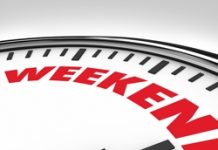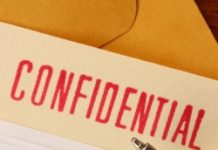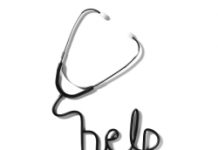 Yes! I’ve made it to my first medical interview!” As I walked through the doors of the medical school, it felt like my dreams of becoming a doctor were one step closer to realisation.
Yes! I’ve made it to my first medical interview!” As I walked through the doors of the medical school, it felt like my dreams of becoming a doctor were one step closer to realisation.
I was in awe of the fantastic surroundings and the students who I had long aspired to be, but I tried to persuade myself to not like it too much. With the notorious interview looming ahead and almost 2000 applicants for barely 300 places, I knew the chances of being accepted here were slim.
My day hadn’t got off to a good start. I had shared a hotel room with my mum the night before, but ended up not sleeping most of the night while she suffered from a stomach bug. All night, thoughts raced through my mind of going into this crucial interview, introducing myself and then promptly throwing up. The interviewers would think it was due to nerves, I would be deemed as not resilient enough for such a demanding course and my dreams of becoming a doctor would be over. So I lay awake worrying with my scarf wrapped tightly round my mouth, ate no breakfast and stuffed sick bags into every available blazer pocket – probably not the best pre-interview preparation techniques!
On entering the medical school, I vowed to smile brightly at every single person I encountered in case they might be an interviewer. The interview would be in multiple mini interview (MMI) format. This consists of short six minute interviews or ‘stations’ at which you either have to complete a task or answer questions based on the station’s theme. The best way of thinking about it is like interview ‘speed dating’, (although I’m not sure the interviewers would be so keen on that term!). The interviewers have not seen your application form so you have only six minutes per person to fully express yourself and convey how badly you want to go to their medical school. Then the whistle blows and you move on. No mean feat!
After a talk from the friendly admissions tutor it was time to go in. My heart was pounding; I had been preparing for weeks and wanting to come here for years. The whistle blew and the two minutes of reading information on the station’s door began.
The first station’s theme was about interpreting data. The numbers on the information sheet blurred and I just couldn’t make sense of the words under the pressure. With a page full of complex information and data, two minutes was not enough. I hadn’t finished, the whistle blew and I skimmed to the bottom of the page to see the question.
It was about the disadvantages of a procedure which at that moment I could only think of as advantageous. I was madly trying to work out my answer whilst opening the door … Oh! The interviewer was the lady who I had smiled at in the toilets. My hopes soared, one person who I had smiled at, perhaps somewhat overenthusiastically, might have paid off! I sat down, and my heart sank as she asked me that question. I finished my short answer, she prompted me to continue. I couldn’t think and so repeated myself. After prompting me again she said with a kind smile: “I think we’ll leave it there”. My smile froze on my face while inside I was frozen with terror – had I messed up already?
But there was no time to think, some scary-looking graphs and complex tables were being pushed my way. I was asked to work out the percentage of people who had had cancer treatment and were cured. I looked around, but there was no calculator. I can still remember those dreaded numbers: 135/292. Most of you are probably thinking that that’s easy, but the pressure, panic and my irrational fear of maths made it otherwise. After the lady had stared down at me for what was, in reality, only a few seconds but for what seemed, in my head, like a decade, I said “Around 45%?”. Phew, I’d got it.
After a few more questions which I managed to survive, the complex-looking graph was pushed towards me. A calculation resulted in 0.1 of a person getting cancer … I knew I had made an error, so I tried again. Again, 0.1. I explained why I was taking so long and picked up the pencil for another shot but – “I think we’ll leave it there”. Again, the dreaded “I think we’ll leave it there”.
The next stations consisted of a role-play testing communication and persuasion skills. Shockingly, the interviewers actually introduced themselves and seemed happy to talk to me!
Feeling enthused I entered the last station, held out my hand and said brightly “Hello, I’m Carla”. The interviewer just snapped “Candidate number?!”. He proceeded to ask me some questions on my opinions and coping mechanisms. He did not smile, nod or make a noise. I’m not sure if he even blinked. I continued to waffle on… Was he even conscious? My words were sounding more and more ridiculous but then – a sign of life! – he raised a hand to shut me up. He asked me a question about a confidentiality situation but no matter what I said, all he replied was “And what if that couldn’t happen?”.
Trying hard not to scream and with my hopes of getting in crashing around my feet, the whistle finally blew. I stood up, acting like it was a shame that our conversation had been cut short, and thanked him whilst looking down to see if he had offered his hand to shake. It was firmly on the table and his disconcertingly blank stare had returned. Right, (remembering my interview training), I wouldn’t offer my hand to shake then. I turned and took two steps away. But as if the situation had not already been full of enough awkwardness to last a life time, he raised his hand. So I made a U-turn, smiling sheepishly shook his hand, and at last headed out. What a relief.
After crying into a large McDonald’s all the way home, (yes, I know that’s a sign of a weak character), I came to the conclusion that the next interview could be just as awkward and soul-crushing as this one, but positively thinking it couldn’t get any worse. So I might as well give it a shot but start mentally planning my gap year in the meantime.





































